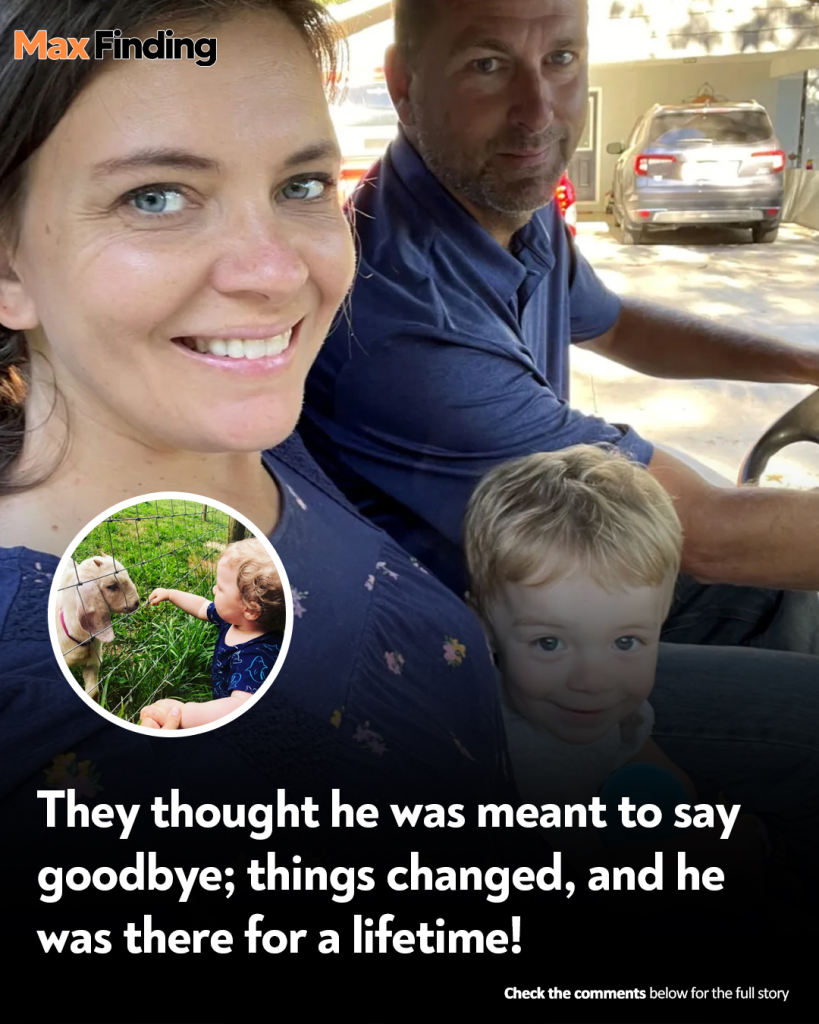Julia was a woman whose heart had been beautifully broken and mended more times than she could count. As a dedicated foster mother, she had made a career out of creating safe harbors for children adrift in the turbulent sea of life. Her home was a revolving door of little footsteps, fleeting laughter, and temporary attachments. She had mastered the bittersweet art of letting go, a necessary survival mechanism in a world where her role was to be a bridge, not a final destination. With each child who came and went, she gave a piece of her soul, knowing that goodbye was an inevitable part of the journey. She had learned to compartmentalize the ache, to celebrate the successful reunifications, and to quietly grieve the departures. But no amount of experience could have prepared her for Bra.
From the instant the social worker walked him through her door, Julia sensed a profound shift in her well-ordered universe. Bra was a small, fragile-looking boy with eyes that held a universe of unspoken sorrows. Unlike many of the other children who had passed through her care—some acting out in anger, others retreating into a shell of fear—Bra was different. He was preternaturally calm, observant, and possessed a quiet dignity that seemed far beyond his years. He rarely spoke, but when he did, his words were thoughtful and deliberate. There was an old soul lingering behind his youthful gaze, a silent understanding that created an invisible thread between him and Julia from their very first meeting.
As days turned into weeks, and weeks into months, that thread thickened into an unbreakable cord. Julia found herself drawn to him in a way she had never experienced. She would watch him as he sat in the garden, tracing the patterns on a leaf with intense focus, or as he meticulously arranged his few toys. They developed their own language, one of quiet companionship and shared glances. While she provided the same unwavering love and stable environment she had offered to dozens of other children, the bond with Bra felt primal, deeply rooted in a part of her heart she didn’t know existed.

The thought of his eventual departure, a thought she had professionally managed for years, now became a source of deep, personal anguish. The familiar ache of “letting go” transformed into an unbearable, gut-wrenching dread. How could she say goodbye to this child who felt less like a temporary charge and more like a missing piece of her own being? The love she felt for him was fierce, protective, and overwhelmingly permanent. It defied all the rules she had set for herself, blurring the lines between professional duty and profound maternal instinct. The idea of his absence left a void in her home, and in her soul, that felt terrifyingly absolute.
Struggling with this internal turmoil, Julia knew she was approaching a crossroads. The possibility of adoption began to whisper in her mind, a prospect that was both exhilarating and daunting. Could she dare to make this bond permanent? Was it fair to the other children she could help if she dedicated her life to just one? It was a decision that weighed on her every waking moment.
It was in the midst of this emotional whirlwind that the letter arrived. It was an official-looking envelope from the foster care agency, and Julia’s heart sank, assuming it was the dreaded notification of Bra’s placement. With trembling hands, she tore it open, her eyes scanning the page for the words she so feared. But what she read was not what she expected.
The letter contained a stunning revelation, a piece of information unearthed from Bra’s sparse file that had been previously overlooked. It was a detail about his biological mother, a woman who had relinquished him at birth. The letter detailed a name and a date, and as Julia’s eyes focused on the information, the world around her seemed to slow down and fade away. A wave of dizziness and disbelief washed over her.
The name of Bra’s biological mother was a name she knew intimately. It was the name of her own sister, who had passed away years ago after a long and troubled life, estranged from her family. A sister Julia believed had died without ever having a child. The dates aligned with a period in her sister’s life when they had been completely out of contact. Suddenly, the inexplicable connection, the profound sense of familiarity, the feeling that Bra was a part of her very soul—it all clicked into place with breathtaking clarity.
Bra was not just any foster child. He was her nephew. He was her blood. He was the last living piece of her lost sister.
Tears streamed down Julia’s face, tears of shock, of grief for her sister’s secret pain, and of overwhelming, earth-shattering joy. The universe had not been cruel; it had been guiding him to her all along. The powerful, unexplainable bond she felt was no mystery; it was the call of family, echoing through tragedy and time. The decision that had tormented her was no longer a decision at all. It was a certainty.
Bra had not just found a temporary harbor in her house; he had found his way home. And Julia, the woman who had perfected the art of letting go, finally understood the profound and beautiful gift of holding on forever.